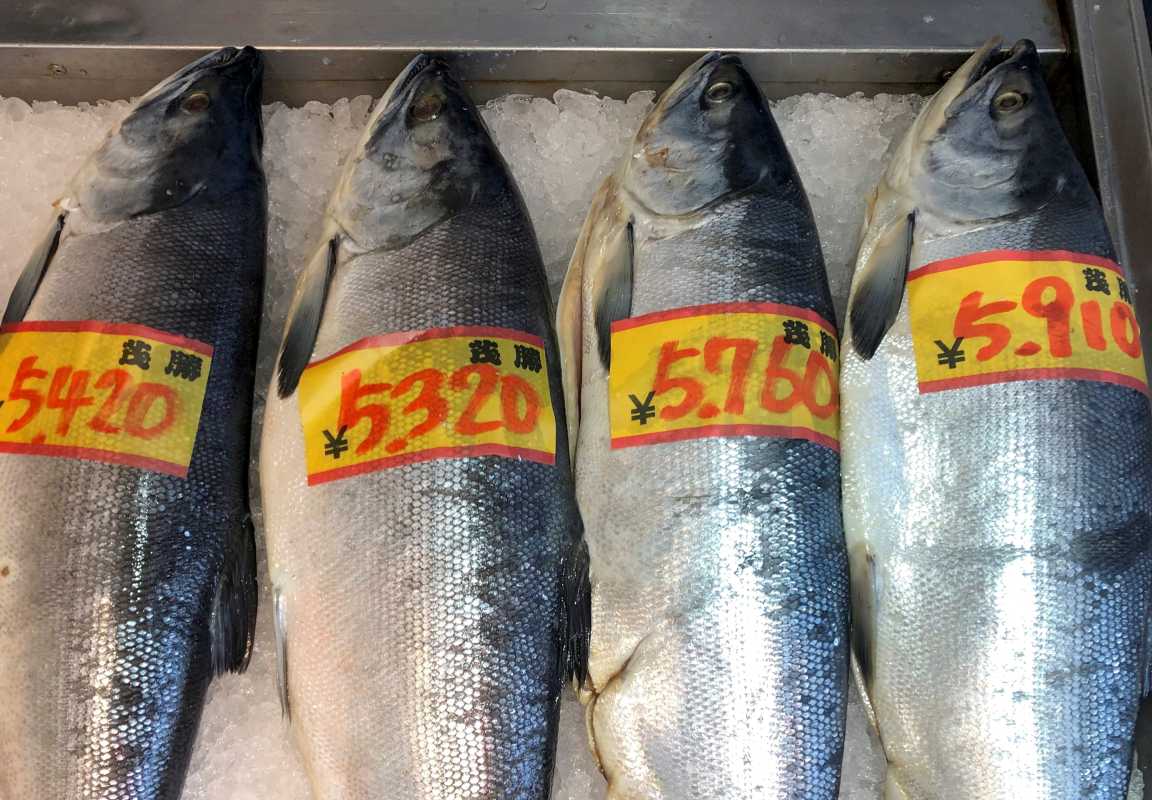World
Global Efforts to Curb Russian Seafood Imports Amid Ukraine Conflict

Since the onset of Russia’s invasion of Ukraine, the concerted global efforts to oppose Russian aggression have been evident. While sanctions have played a key role in pressuring Russia economically, there are loopholes that need to be addressed.
Agiya Zagrebelska from the Russian National Agency on Corruption Prevention emphasized the significance of full-capacity sanctions in curbing Russian industries. Notably, the European Union and the United States have imposed multiple sanctions targeting key entities linked to President Vladimir Putin.
While several sectors faced sanctions, the Russian seafood industry largely evaded strict penalties, allowing approximately $1 billion worth of seafood exports to flow into the EU market. Challenges in tracking the origin of seafood have hindered effective enforcement of restrictions.
Addressing the issue, the US recently extended its sanctions to encompass Russian seafood imports that undergo substantial transformation in third countries. However, the complexity of seafood supply chains poses challenges in preventing Russian products from reaching Western markets.
Despite efforts to tighten regulations, the European Union and the United States continue to grapple with Russian seafood infiltrating their markets. The loopholes exploited, including processing fish in countries like South Korea and China, highlight the need for enhanced monitoring and enforcement.
The Busan Harbour in South Korea has emerged as a crucial node in the Russian seafood export network. Notably, Russian halibut imports at the harbour surged after the Ukraine conflict began, reflecting the shifts in global seafood trade dynamics amidst geopolitical tensions.
Reflecting on the impact of seafood sanctions, experts underscore the broader implications of indirectly financing Russia’s war efforts through consumer purchases. Public awareness and strict enforcement mechanisms are crucial in deterring the inadvertent support of the Russian economy through seafood consumption.
In January 2024, the Council of the European Union revised its policies to impose higher tariffs on Russian fish imports. While this move aims to deter trade with Russia, concerns arise regarding potential price hikes for consumers and the broader economic repercussions.
Overall, the ongoing efforts to curb Russian seafood imports underscore the complex interplay between economic sanctions, supply chain vulnerabilities, and geopolitical conflicts. Collaboration among global entities is essential in ensuring effective measures to mitigate the unintended support of Russian interests amid the Ukraine conflict.












